Spring 2023 Colloquium
Lectures begin at 3:35pm in 125 Nicholson Hall on the East Bank of the University of Minnesota-Twin Cities campus. Please note: lectures will not be held March 3 or March 10.
At this time, all events will be in-person unless otherwise stated. Some events may be subject to change. Please check back for updates or contact hstm@umn.edu for more information.
To learn more about MCPS-sponsored lectures, please visit their website.
Earlier Colloquium
David Redish, January 20, 3:35pm
Neuroscience, University of Minnesota

Annual Science Studies Symposium & MCPS Lecture
Title: The New Science of Morality
Merlin Chowkwanyun, January 27, 3:35pm
School of Public Health, Columbia University
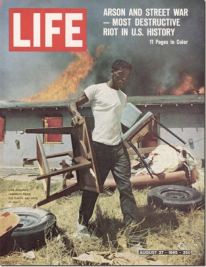
Title: Local Politics and Health Reform, Then and Now
Abstract: Conventional medical research fetishes conclusions derived from aggregate (typically quantitative) datasets. What results are top-down, national narratives of health policy that marginalize the thick experience of specific places. This talk takes an alternative approach and argues that one cannot understand the origins of health problems -- and the success of solutions to address them -- without analyzing the local context that surrounds them. We'll examine battles over pollution caused by industrial giants, coal extractors and fights over the unequal distribution of medical care in major cities via deep dives -- not ephemeral stops -- in four localities: New York City, Los Angeles, Cleveland, and Central Appalachia. In addition to arguing for the virtues of the local optic, this lecture will also analyze localism as a political practice, which was embraced by community health advocates in the mid-20th century, only to fizzle and confront new challenges a few decades later that remain today.
Alma Steingart, February 10, 3:35 pm
Department of History, Columbia University
Title: On Mathematical Measurement and Representative Politics: Rethinking the 1960s Apportionment Revolution
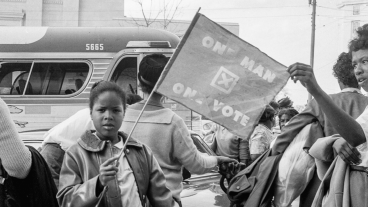
Abstract: The Supreme Court’s 1962 decision in Baker v. Carr sparked renewed interest in the mathematics of electoral politics in the United States. In the three months following the Court’s ruling that malapportionment cases were justiciable, challenges to the existing apportionment plan were brought up in 22 states. Initially, however, there was no clearly articulated standard by which malapportionment should be measured. As then New York Governor Nelson Rockefeller retorted when pressed on why New York has not revised its apportionment plan, “But what would be your basis for apportionment? Have you got a formula?” In search of a solution, political scientists, mathematicians, and early computer enthusiasts began asking whether mathematical analysis could be used to achieve fair representation. In this talk, I survey some of the early 1960s attempts to bring mathematical and computational techniques to the study of political representation. I demonstrate how conflicting ideas about how to measure fairness came to influence electoral politics in the Unites States and how claims to mathematical exactitude served to further obscure political questions.
Justin Biddle, February 17, 3:35pm
School of Public Policy at the Georgia Institute of Technology

Title: Organizational Perspectives on Values in Artificial Intelligence
MCPS Lecture
Erik Heinrichs, February 24, 3:35pm
History, Winona State University
Title: “Reformulating and Rebranding a Universal Remedy: Local Theriacs in Early Modern Europe”
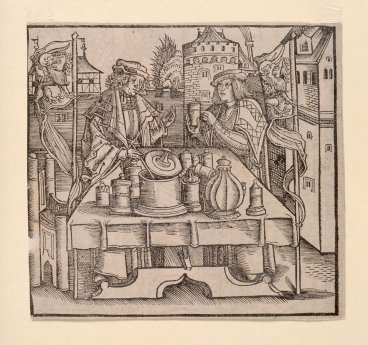
Abstract: This talk explores how early modern interest in the ancient remedy theriac stimulated medical innovations, both experimental and commercial in nature. Although Venice was famous for producing its prized theriac since the 12th century, variations soon appeared in other Italian trading centers, such as in Genoa and Milan. This talk examines how this trend of reformulating or rebranding theriac on a more local basis took hold in lands beyond the Alps after 1500, as various communities sought to make theriac their own. In France, England, and the Holy Roman Empire, physicians and apothecaries began to rethink the original recipe more fundamentally as they also grappled with the economic and political implications of the foreign theriac trade. This trend gives insight to the commercialization of medicine in these regions as well as to the nature of experimentation within traditional recipes by early modern physicians and apothecaries. Subjects covered include the “German theriac” of Johann Vochs, the “French theriac” of Symphorien Champier, as well as the “London treacle” from the apothecary William Besse.
Short bio: Erik Heinrichs is a professor of history at Winona State University (Minnesota). He holds a Ph.D. in history from Harvard University. His research fields are the history of medicine and religion in the late medieval and early modern periods, especially in German-speaking Europe. He has published on various topics including plague, alchemy, medical recipes, and the Reformation.
Elena Aronova, March 17, 3:35pm
History, University of California Santa Barbara
Title: Collaboration Across and Beyond “Two Cultures”
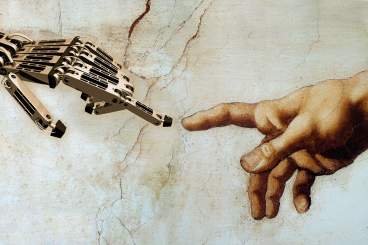
Abstract: There is a growing recognition today that the image of the sciences and the humanities as two separate “cultures”, famously described by C.P. Snow in his Rede lecture in 1959, is no longer tenable. Movements within the historical profession, such as “big history,” “deep history”, and bio-history, are trying to articulate modes of constructive engagement between historians and natural scientists. Within natural sciences, there has been a similar pattern in the relatively recent past that involves the increasing blurring of boundaries between the natural and the social/human sciences. The trend is posited as distinctly twenty-first-century phenomenon. Against this backdrop, I argue that throughout the twentieth century, when the specialization has driven the sciences and the humanities father apart, there have been notable examples of collaborations between natural scientists and historians, that were diverse, complex, and, at times, surprisingly productive.
In the paper, I consider 3 examples of collaboration across and beyond “two cultures”. The first example considers the case of the International Center of Synthesis in Paris, which promoted and institutionalized interdisciplinary and international collaboration as an end goal of this institution operating between 1925 and 1939. The second example considers the entanglements between the emergence of Big Science and the project of “Big History” – a large-scale collaborative project of writing a “universal history for the twentieth century,” launched by UNESCO in the 1950s. In the third example, I will consider an effort to carve a space for history within a Big Science project in geophysics, the International Geophysical Year (IGY), and its successor, the World Data Center system. These different programs were designed to straddle the two cultures. Some of these efforts were more successful, others less so, but this, I would suggest, is in itself a phenomenon worthy of note: throughout the twentieth century, natural scientists have increasingly recognized that many scientific questions are composites of the natural and the social, and that many of the problems they address – in physics, in evolutionary biology or in environmental data collection – are hybrid problems, involving interrelationship of the social and natural worlds.
Rasmus Winther, March 24, 3:35pm
Humanities, UC, Santa Cruz

Title: Our Genes
Abstract: Situated at the intersection of natural science and philosophy, Our Genes explores historical practices, investigates current trends, and imagines future work in genetic research to answer persistent, political questions about human diversity. A moderate position about the explanatory power of genes that is often left unarticulated is defended. Simply put, human evolutionary genomics—our genes—can tell us much about who we are as individuals and as collectives. However, while they convey scientific certainty in the popular imagination, genes cannot answer some of our most important questions. Alternating between an up-close and a zoomed-out focus on genes and genomes, individuals and collectives, species and populations, Our Genes argues that the answers we seek point to rich, necessary work ahead.
Graham Mooney, March 31, 3:35pm
History of Medicine, Johns Hopkins University
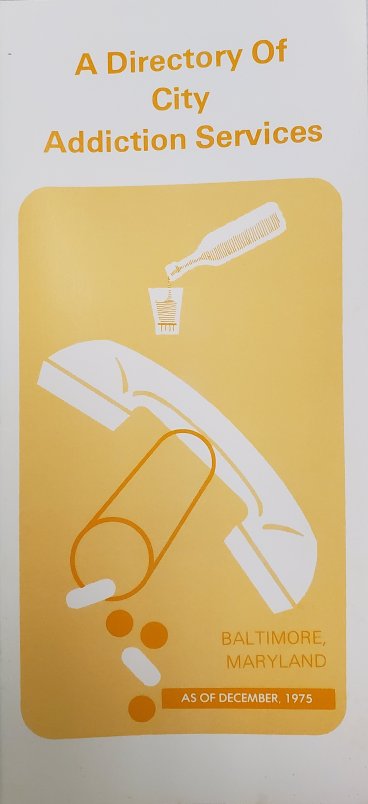
Title: Neoliberalism in Local Public Health: The Case of Baltimore City
Abstract: In September 1994, Baltimore’s Health Commissioner Dr Peter Beilenson wrote a memo to Mayor Kurt Schmoke with a sweeping proposal: the privatization of the Baltimore City Health Department (BCHD). Claiming that the average citizen of Baltimore "won’t know or care much" about a "Baltimore City Health Corporation," Beilenson’s idea was to release the health department from the shackles of government red-tape. Mayor Schmoke, himself no stranger to radical public health policies, rejected Beilenson’s suggestion. In this paper I explore the historical contexts in which Beilenson was able to make the suggestion in the first place. I argue, first, that part of Baltimore's self-curated image as a Renaissance City in the mid-1970s was achieved through an illegal scheme of loan financing that dispensed city funds to corporations and quasi-government entities for all kinds of projects. This so-called Shadow Government established an administrative culture in City Hall whereby an attempt to privatize the city health department might be seen as a wholly unremarkable step. Second, I argue that the incremental neoliberalization of public health functions instigated by Beilenson's predecessors made his plea for BCHD privatization a more realistic proposition than would otherwise have been the case. By the early 1990s BCHD had already set up two large quasi-private agencies delivering mental health and substance abuse Rather than dismantling the harmful structures that produce and condition such behaviors, neoliberalization in public health opens the doors for corporate entities to profit from them. Comprehending how and why neoliberalization unfolded is crucial to understanding the performance of local public health government in the present.
Nathan Crowe, April 14, 3:35pm
Department of History, University of North Carolina - Wilmington
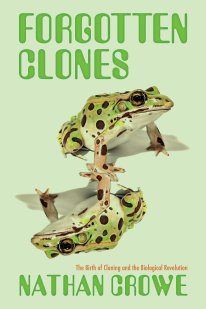
Title: “Forgotten Clones: The Birth of Cloning and the Biological Revolution”
Abstract: Long before scientists at the Roslin Institute in Scotland cloned Dolly the sheep in 1996, American embryologist and aspiring cancer researcher Robert Briggs and his team developed the technique of nuclear transplantation using frogs in 1952. Although the history of cloning is often associated with contemporary ethical controversies, Forgotten Clones revisits the influential work of scientists like Briggs, Thomas King, Marie DiBerardino, John Gurdon, and University of Minnesota’s own Robert McKinnell before the possibility of human cloning and its ethical implications first registered as a concern in public consciousness. By focusing instead on new laboratory techniques and practices and their place in Anglo-American science and society in the mid-twentieth century, I demonstrate how embryos constructed in the lab were only later reconstructed as ethical problems in the 1960s and 1970s with the emergence of what was then referred to as the Biological Revolution. My work illuminates the importance of the early history of cloning for the biosciences and their institutional, disciplinary, and intellectual contexts, as well as providing new insights into the changing cultural perceptions of the biological sciences after the Second World War.
Stephen Snobelen, April 21, 3:35pm
History of Science and Technology, University of King's College, Halifax
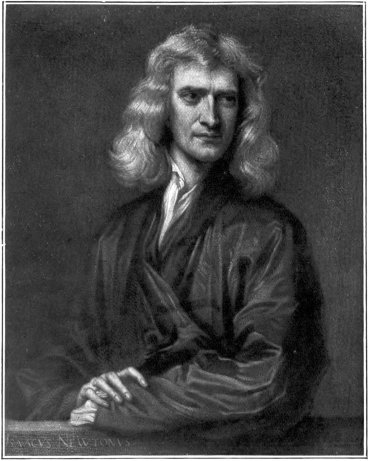
Title: Science and Religion in the Thought of Isaac Newton
Abstract: Newton was celebrated already in his own lifetime for his paradigmatic contributions to mathematics, optics, physics and cosmology. The recovery and study of Newton’s theological papers in recent decades demonstrates that he was just as passionate about researching early religion, church history, Christian doctrine and biblical prophecy. Newton’s science and religion can be studied separately, but what did Newton himself think about the relationship or relationships between these two spheres of his intense intellectual engagement? This presentation uses a series of programmatic statements on the relationship of God to natural philosophy that Newton penned in his later years to test the degree to which Newton adhered to his own models for relating science and religion. Did Newton believe that natural theology could be a part of natural philosophy or that they should be kept separate? Was there any conceptual overlap between his cosmology and his apocalyptic studies? Might his theological heresy have impinged on his science? And did Newton relate his biblical faith to his science or keep the two distinct? Newton scholarship is now ready to answer these questions.